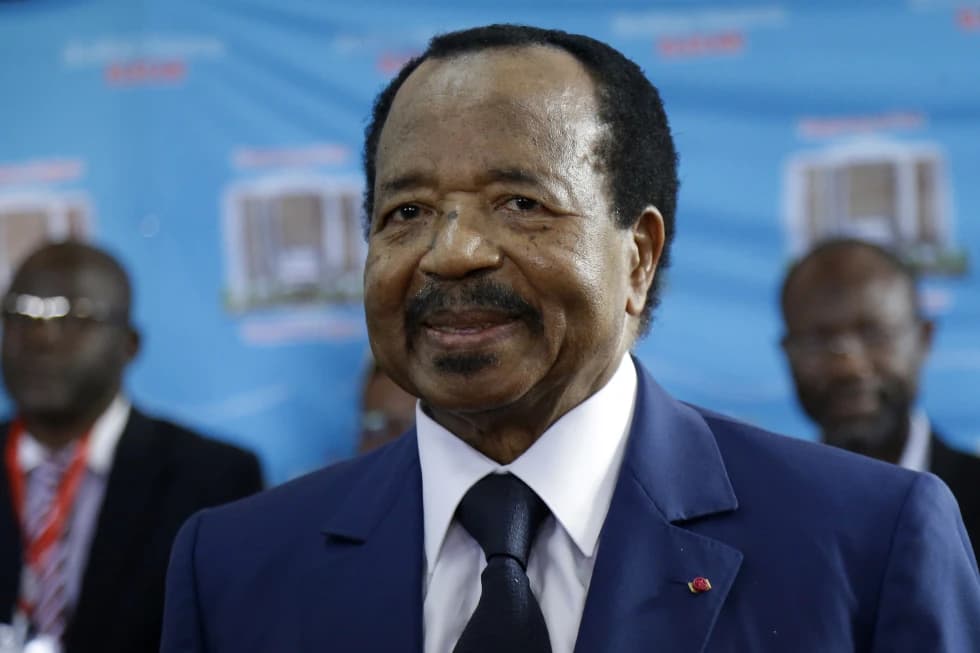YAOUNDÉ, Cameroon – Ahead of contentious presidential elections set for Oct. 12, many young Catholic voters in Cameroon say they’re seeking “generational change,” widely understood as a call to end the 43-year reign of 92-year-old President Paul Biya.
“It defies logic for someone of such advanced age to lead a predominantly young population,” said Omar Yusinyu, a member of the Catholic Men Association at St. Anne’s Parish in Obili, encapsulating a core sentiment driving the youthful dissent.
“In a normal society, aged people give way to young ones, especially their children, to manage most of their businesses,” he told Crux.
Biya is seeking an unprecedented 8th term in office. Should he prevail, he would be almost 100 years old by the time his term ended.
Biya recently left the country for what his office has termed a private visit to Europe. The trip comes a week after his daughter, Brenda, urged Cameroonians not to vote for her father, accusing him of causing enormous suffering for the country’s people. She has, however, since walked back on that statement.
Biya faces competition from 11 other candidates, including two former ministers who resigned to challenge their long-serving boss.
Catholic youth interviewed by Crux are increasingly vocal in their opposition to extending the tenure of the world’s oldest leader and Africa’s second-longest-serving president, after Equatorial Guinea’s Obiang Nguema.
Yusinyu said he has not yet made up his mind on who to vote for, but Biya isn’t among those he’s considering.
“Biya seeking another 7-year term is an insult to the youth,” he said.
“It’s sometimes shameful to see a young man in Cameroon claiming that a 92-year-old man is the best Cameroonians can have. For more than 40 years in power, there is no single achievement that his government can boast of. This is a man who took Cameroon from somewhere and has brought the country to its knees,” he said.
But it is not only the President’s age that has become a major turn-off for youth. Decades of poor governance are also driving Catholic youth to seek alternative leadership.
“The country is not well-governed, and it is so because of the current president,” said Divine Kwansu.
Yusinyu starkly states that after more than 40 years in power, “there is no single achievement that his government can boast of.”
Many young Cameroonians believe the nation has been brought “to its knees” by leadership which, according to Divine, has increasingly been ruling by proxy, with decisions made on the president’s behalf that have not benefited citizens. This growing frustration among youth reflects a broader desire for accountability and effective governance that has been absent for decades.
While youth have not identified the candidate they want to vote for, Yusinyu said he is cautiously considering Biya’s former minister who resigned earlier this year to challenge the incumbent for the top job, Issa Tchiroma.
Tchiroma had served as Biya’s minister for about 20 years, but Yusinyu believes that of the 11 candidates challenging the incumbent, Tchiroma remains “the lesser evil.”
“It’s clear that Issa Tchiroma Bakary seems to be the lesser evil that people should go in for. He has made some interesting steps since his candidacy was [approved] by the elections management body. If he stands the promises he’s made, there could be some significant change,” he told Crux.
Yusinyu explained that despite Tchiroma’s 20-year history with the same regime he now opposes, his calls for opposition unity and apologies for past actions as Minister of Communication are attributes of leadership that should guide the electorate.
“Giving him a chance, even if just because Cameroonians are tired of hearing the name Biya for over four decades, will be good for me,” Yusinyu said, reflecting a pragmatic approach rooted more in desire for change than absolute confidence in the opposition candidate.
The emerging political consciousness represents a significant challenge to the established order, as young Cameroonians demand the opportunity to shape their nation’s future beyond the shadow of a presidency that has spanned most of their lives.
Catholic bishops in the Central African nation have been calling on the electorate to actively take part in the presidential polls.
In a September 26 pastoral letter, the Bishop of Bafoussam in Cameroon’s West region urged Christians not only to vote, but also to “defend” their vote.
Bishops of the Bamenda Ecclesiastical Province in August described voting as “an act of grave moral responsibility” and called upon the electorate to be guided by principles of truth, justice, and the common good.
“Elections represent significant moments that engage the attention of all citizens, while at the same time, an occasion for the people to assert their sovereignty through the free and deliberate choice of their leaders,” the bishops said.
“The exercise of the right to vote is an act of grave moral responsibility,” they added, before urging “all duly registered voters to exercise their civic responsibility during the presidential election by voting in accordance with the dictate of their conscience.”













